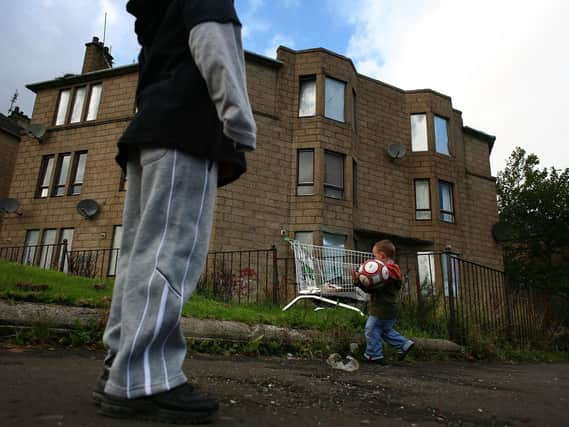More than a third of children in Burnley living in poverty


The research by Loughborough University shows that, even before the pandemic, almost four in 10 children in Burnley were growing up in poverty in 2018/19, once housing costs are taken into account.
That is a total of 7,104 (38.4%) children in the town, and a 6.5% percentage point increase on the 5,554 figure from 2015.
Advertisement
Hide AdAdvertisement
Hide AdIt is a similar story across the rest of the North-West where there have been rises in almost every local area during the same time frame according to the research, which was published today by the End Child Poverty coalition.
The data shows the scale of the challenge faced by government if it is to realise its ambition to build back better and level up opportunities for children across the UK.
Sam Royston, director of policy at The Children’s Society, said: “This data is so shocking, it shows that over the last five years thousands of children across the North-West have been pulled into poverty in part because of unmanageable increases in rental costs.
"That is thousands more children living in households where parents struggle to make ends meet. This was the picture before the devastating impact of the coronavirus crisis, which we know has hit low income families particularly hard.
Advertisement
Hide AdAdvertisement
Hide Ad“Children are deeply affected by poverty; they are more likely to experience poorer physical and mental health; do less well in school; and have fewer opportunities in the future. The government needs a clear strategy to end child poverty, providing Free School Meals to all children in families receiving Universal Credit would be a big step in the right direction.”
The End Child Poverty coalition, who published the research, is calling on the Government to recognise the scale of the problem and its impact on children’s lives.
They are urging the Government to set out an ambitious plan to tackle child poverty encompassing not only social security spending but the high cost of housing and childcare and investment in children’s services.
The report is based on data published by the Department for Work and Pensions in March 2020, and on estimates of the effect of housing costs on poverty rates produced by the Centre for Research in Social Policy at Loughborough University, based on survey evidence.
Advertisement
Hide AdAdvertisement
Hide AdEarlier this year, Boris Johnson was rebuked by the statistics watchdog for his repeated misuse of child poverty statistics. The Statistics Authority upheld a complaint from the End Child Poverty coalition judging that on three separate occasions his statements on child poverty were ‘incorrect’.
Anna Feuchtwang, chair of End Child Poverty which commissioned the research, said: “The Government can be in no doubt about the challenge it faces if it is serious about ‘levelling up’ disadvantaged parts of the country.
"This new data reveals the true extent of the hardship experienced by families on low incomes – the overwhelming majority of which were working households before the pandemic.
"The children affected are on a cliff edge, and the pandemic will only sweep them further into danger.
Advertisement
Hide AdAdvertisement
Hide Ad“The Prime Minister must urgently admit to the true extent of child poverty in our country rather than resorting to his own inaccurate statistics.
"An ambitious plan to put this shameful situation right would be transformational for millions of children.
"As a matter of urgency we are calling on the Chancellor not to go ahead with planned cuts to Universal Credit which would see families lose out on £1000 a year. Given today’s data, this cut is unconscionable.”
End Child Poverty is calling for an urgent Government plan to end child poverty including:
- Uprating of housing assistance in line with inflation;
Advertisement
Hide AdAdvertisement
Hide Ad- Retain the £20 uplift in Universal Credit introduced at the start of the pandemic, which the Government has indicated will end in April 2021;
- End the benefit cap and the two-child limit on benefits;
- Invest in all children with an increase to child benefit
- Extend Free School Meals to all families in receipt of Universal Credit and those with No Recourse to Public Funds
Comment Guidelines
National World encourages reader discussion on our stories. User feedback, insights and back-and-forth exchanges add a rich layer of context to reporting. Please review our Community Guidelines before commenting.